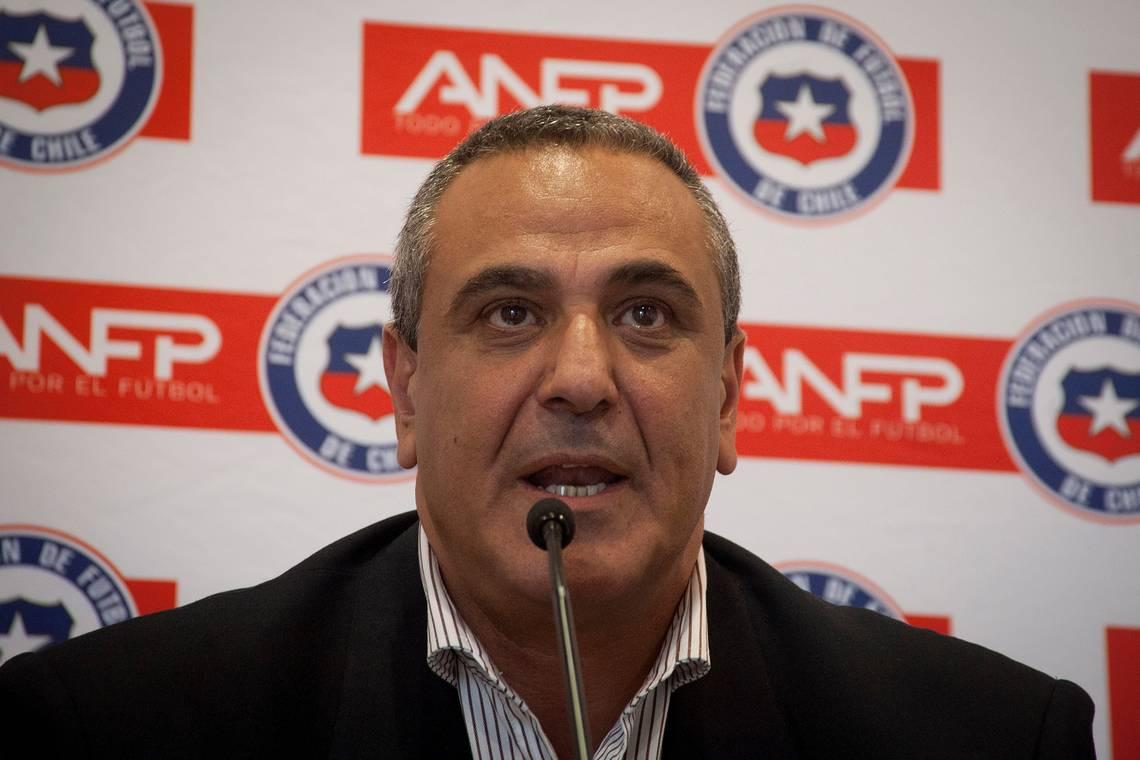Sports Betting Controversy in Chile Pits Soccer Against State
Posted on: July 20, 2022, 07:29h.
Last updated on: July 25, 2022, 04:47h.
Although Chile is still working on legislation to legalize sports betting, operators are backing soccer teams in the country. This is beginning to cause friction between its leading soccer organization and Chile’s gambling regulator.

Bookmakers are an important player in the financing of Chilean soccer. Several now sponsor different clubs, including the University of Chile.
An investigation by the Center for Journalistic Research (CIPER, for its Spanish acronym) uncovered a link with Argentine businessman Fernando Felicevich. This relationship is forcing Chile’s National Association of Professional Soccer (ANFP, for its Spanish acronym) to come out in defense of the various relationships.
ANFP Defends Sponsorships
Amid the presentation of a new security plan in the ANFP and the CIPER report, Chilean soccer boss Pablo Milad acknowledges that Felicevich is a representative of some bookmakers. However, he asserts that this is a “private negotiation of the clubs” in which the ANFP does not participate.
Milad added that through existing laws, the organization must set boundaries on the participation of soccer sponsorships. At the same time, he points out that the ANFP doesn’t have to cut off the relationships.
Soccer is very diverse in many aspects, and the representatives take the opportunity to cover all the areas that they legally can,” Milad explained.
He feels that the legalization of sports betting must come no matter what but that the current environment doesn’t prevent betting operators from backing teams.
“They are a significant support of the clubs,” Milad said, stating that they contribute to their economic stability through the presence of bookmakers in Chilean soccer. In addition, he stressed that this practice is not illegal.
Milad points out that something is illegal only if it breaks the law. However, no law or regulation specifically prohibits these types of sponsorship arrangements.
Sponsorship Ban a Bad Idea
Later, before the Sports Commission of the Chamber of Deputies, Milad defended his position again. In addition, he criticized the bill that seeks to limit online bookmakers, adding that it is wrong to “blame soccer for a country’s gambling.”
“If this project were approved as it is, it would force the termination of sponsorship contracts, which would generate profound damage to Chilean soccer hit by the pandemic,” said Milad. He added that the income from these sponsorship arrangements is equivalent to 7.8% of the total received by the clubs.
Instead of a ban, Milad wants to see Chile introduce smart regulations. To that end, the ANFP has prepared a proposal where sports and sports gambling can enjoy a symbiotic, non-harmful relationship.
Milad hopes the legislation will provide a cushion if Chile moves forward with the ban. The English Premier League will likely introduce a voluntary front-of-shirt ban. But it will gradually introduce the new controls over three years. The ANFP hopes for a similar three-year rollout because of existing partnerships.
Illegal Online Gambling
For his part, the head of the Legal Division of the Superintendency of Gambling Casinos, Manuel Zárate Campos, warned that “In Chile, the development of online gambling is illegal.” Therefore, in his estimation, this makes sponsorships illegal as well.
Zárate indicated that, since 2018, his agency has sent more than 30 claims to the Public Ministry related to web platforms that operate illegal online gambling sites. At the same time, in May and September of last year, it sent to the Council of Self-Regulation and Advertising Ethics and the ANFP reports informing them about the illicit nature of the exploitation of online games in the country.
As a result, according to Zárate, the conclusion is that the law prohibits any activity that the government considers illegal. This includes the promotion and advertising of an activity.
The easiest way to put the subject to rest is to follow the legislation and make a decision. However, sponsorships aren’t likely to go away unless Chile specifically addresses the topic in the discussion.
Related News Articles
Paraguay’s Gambling Regulator Launches Tender for Legal Sportsbooks
Brazil Sees Arrival of State-Level Sports Betting
Most Popular
LOST VEGAS: ‘Tony The Ant’ Spilotro’s Circus Circus Gift Shop
Las Vegas Overstated F1 Race’s Vegas Impact — Report
Mega Millions Reportedly Mulling Substantial Ticket Price Increase
NoMad Hotel to Check Out of Park MGM on Las Vegas Strip
Most Commented
-
End of the Line for Las Vegas Monorail
— April 5, 2024 — 90 Comments -
Mega Millions Reportedly Mulling Substantial Ticket Price Increase
— April 16, 2024 — 8 Comments -
Long Island Casino Opponents Love New York Licensing Delays
— March 27, 2024 — 5 Comments
















No comments yet